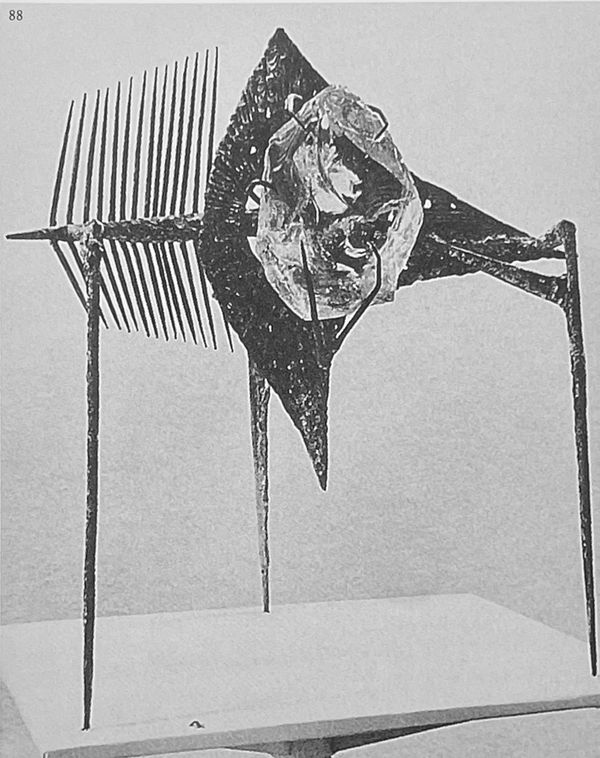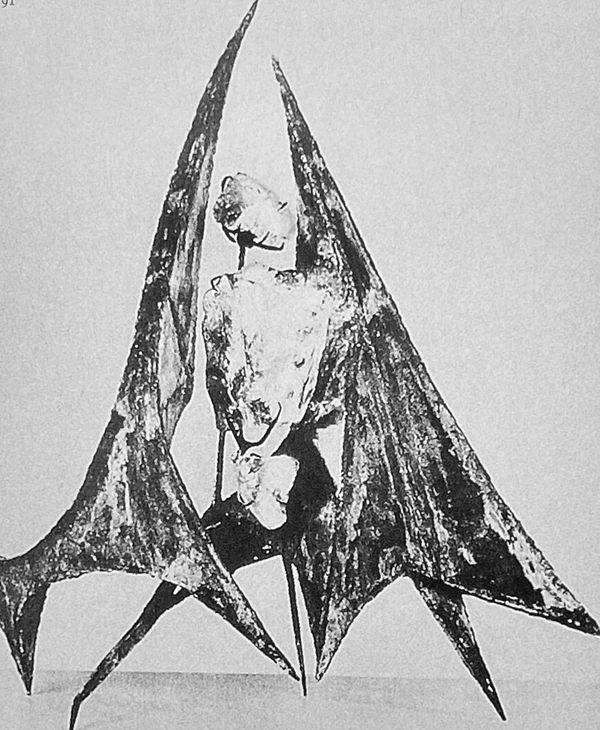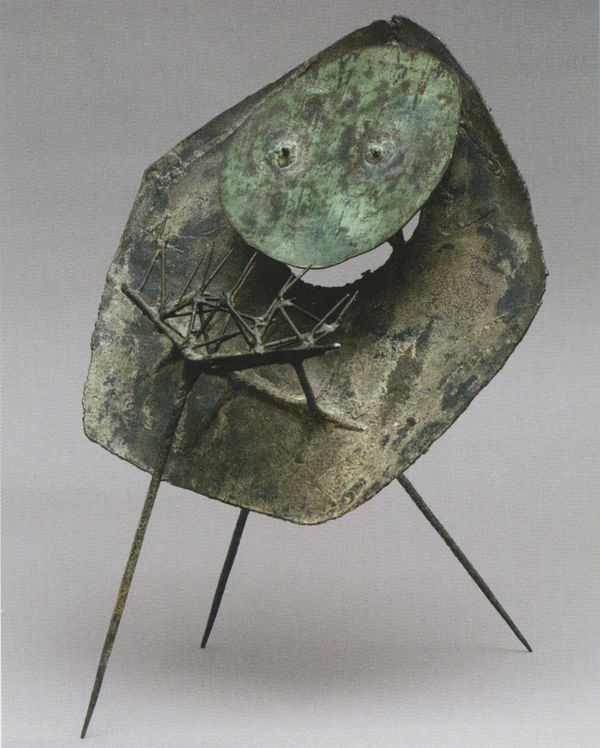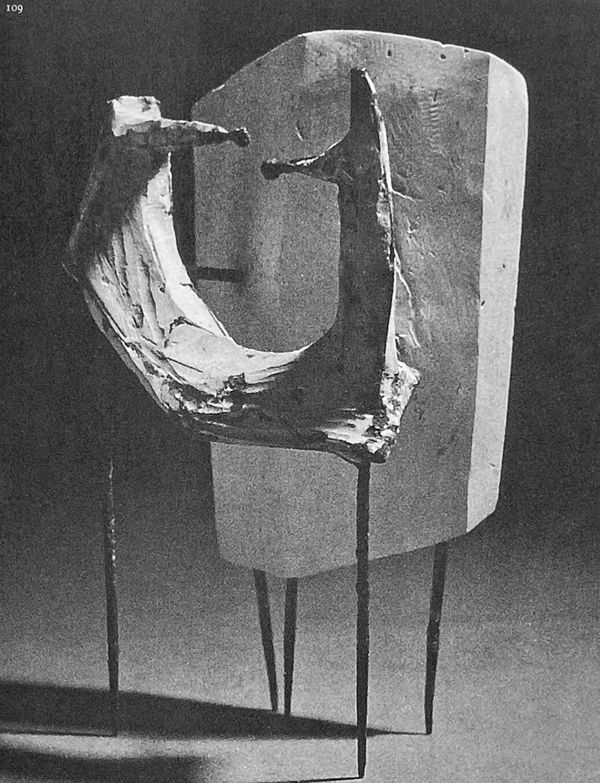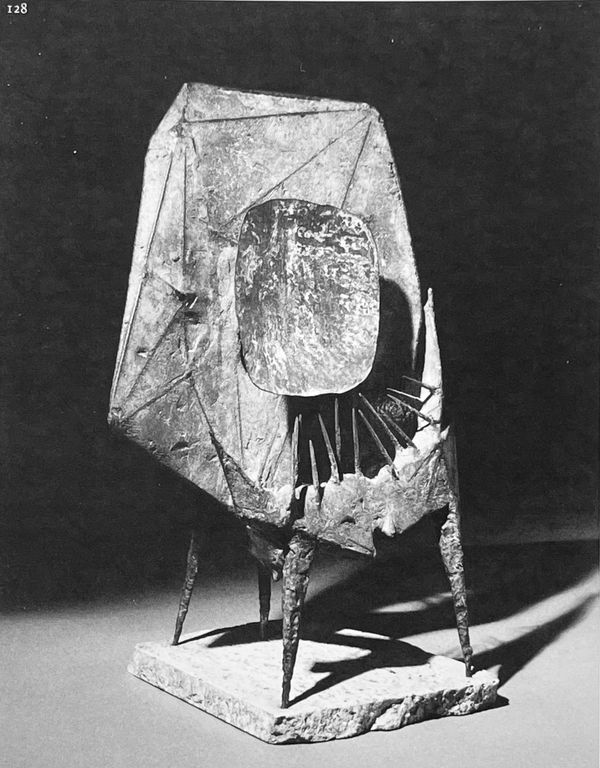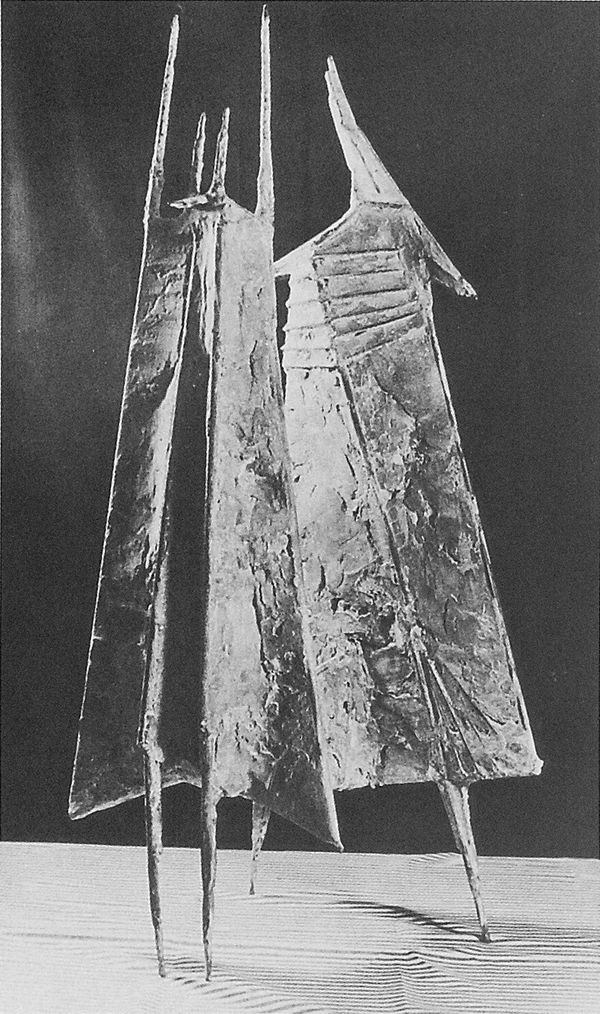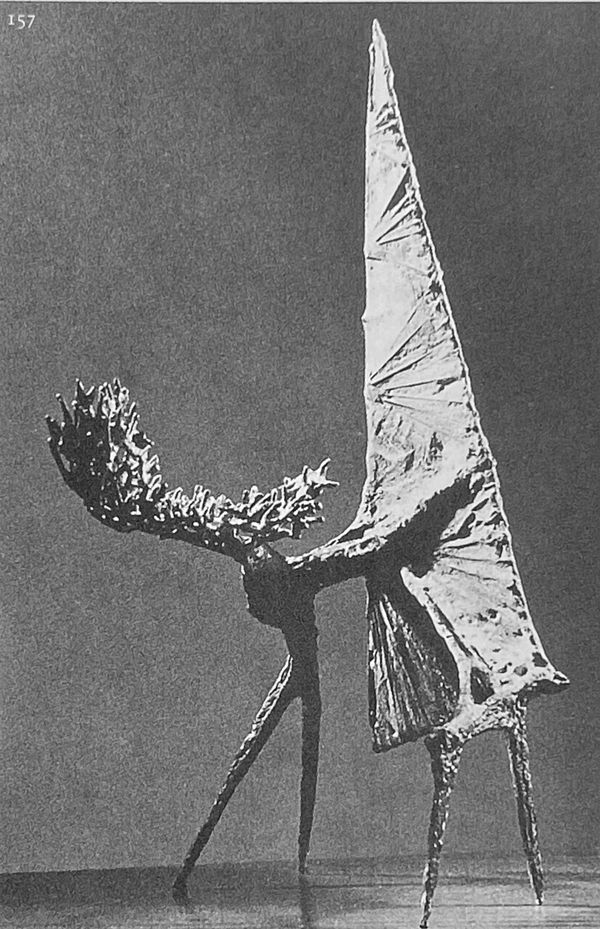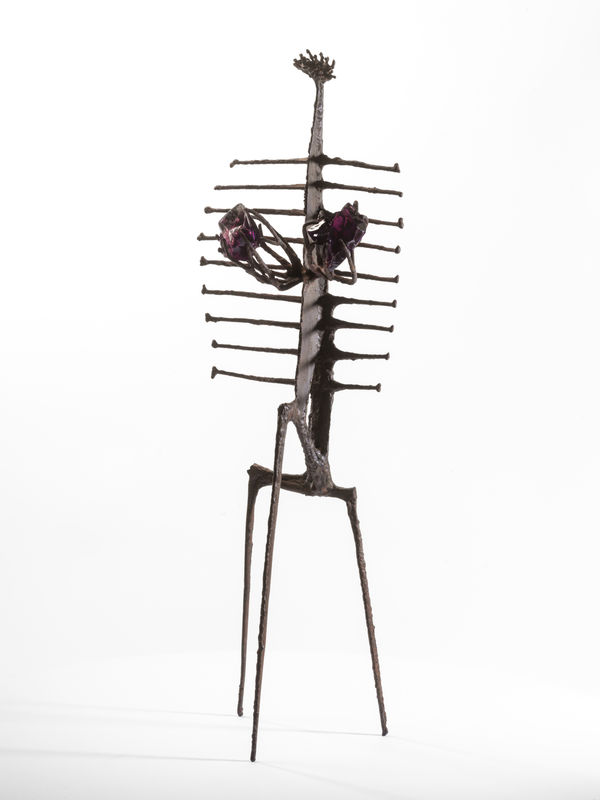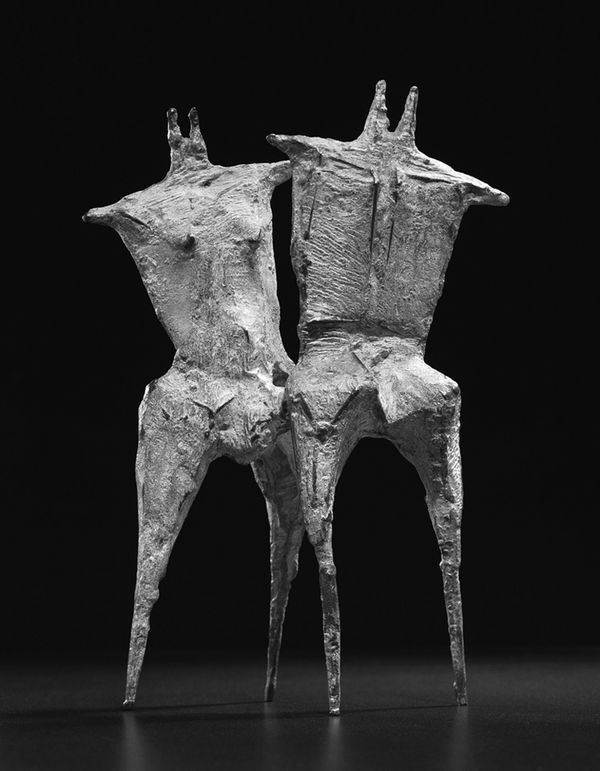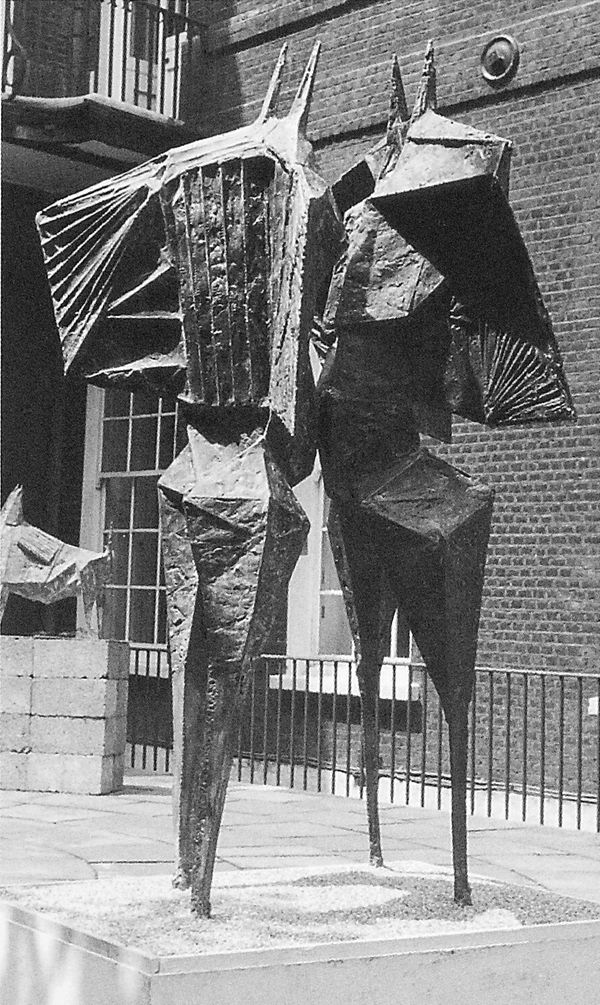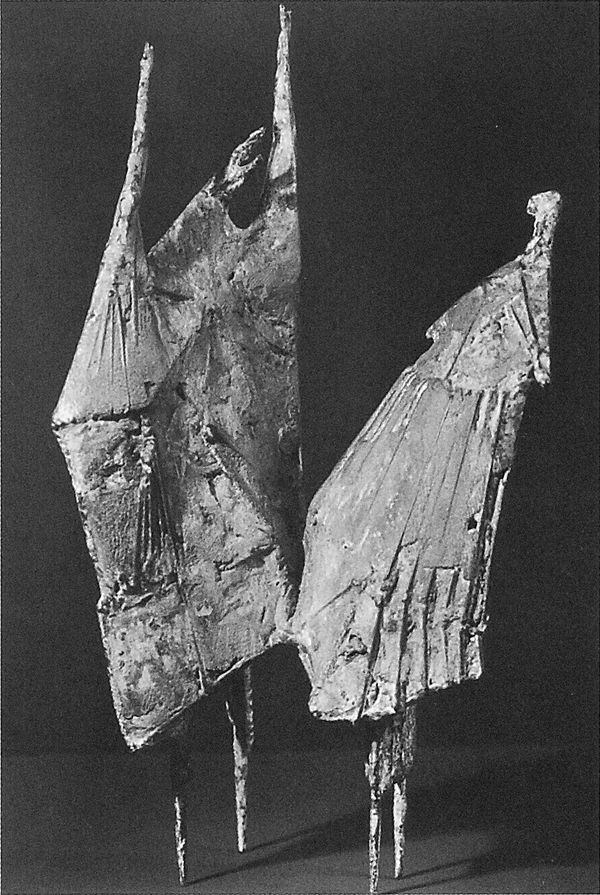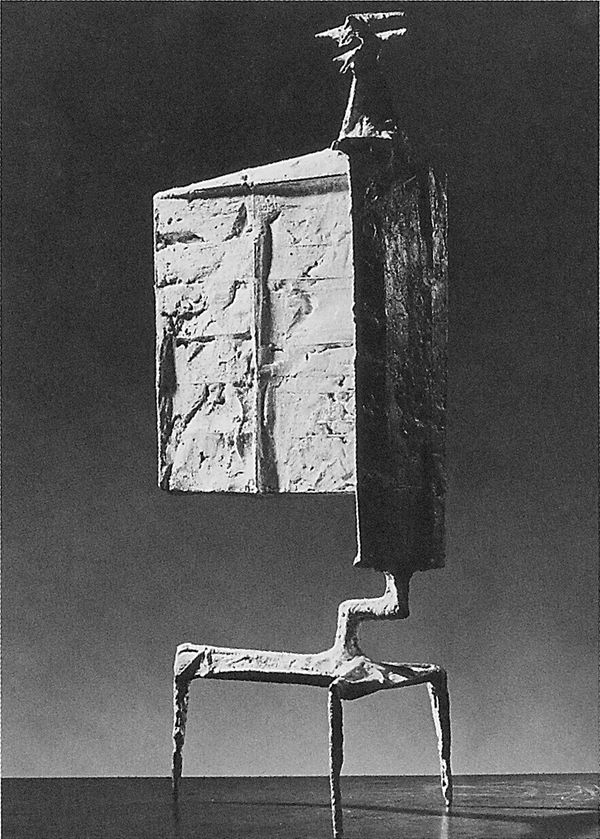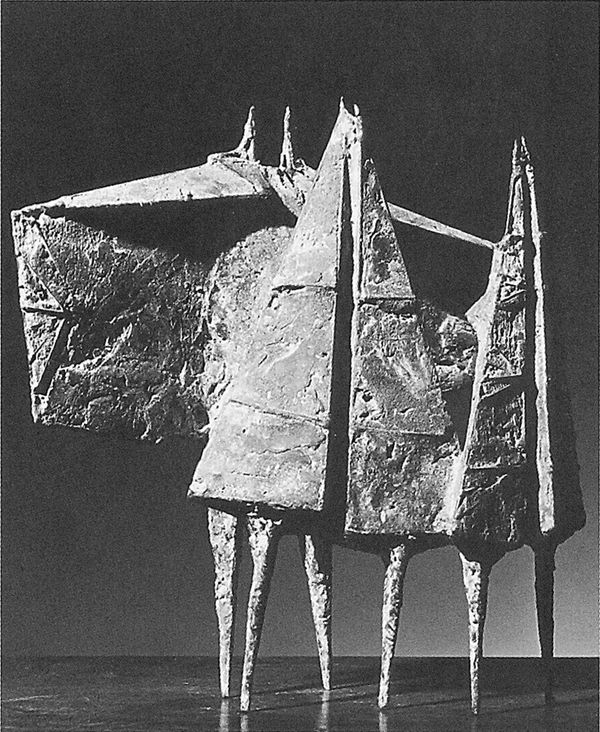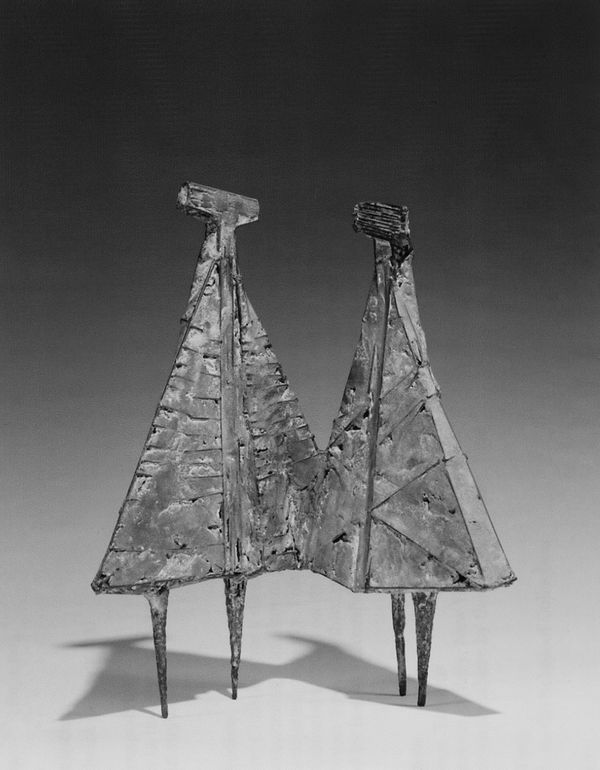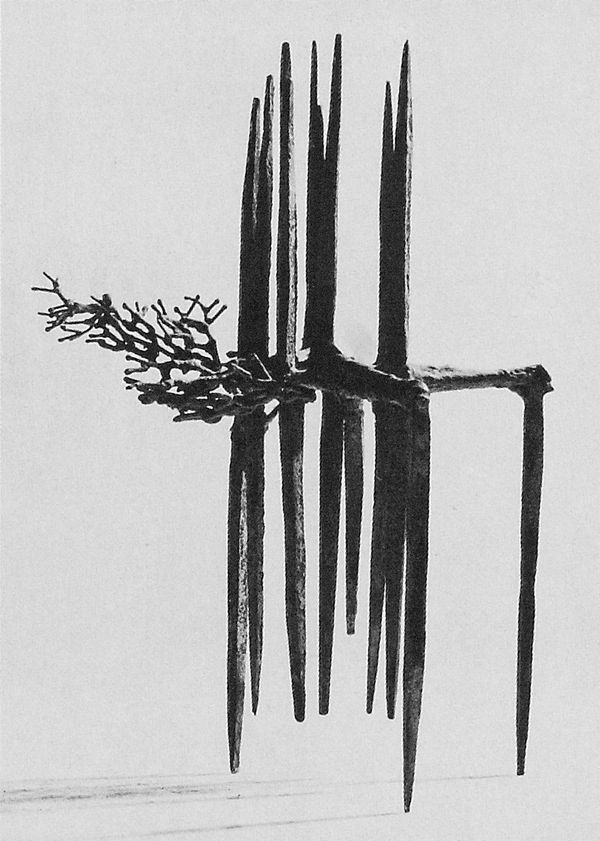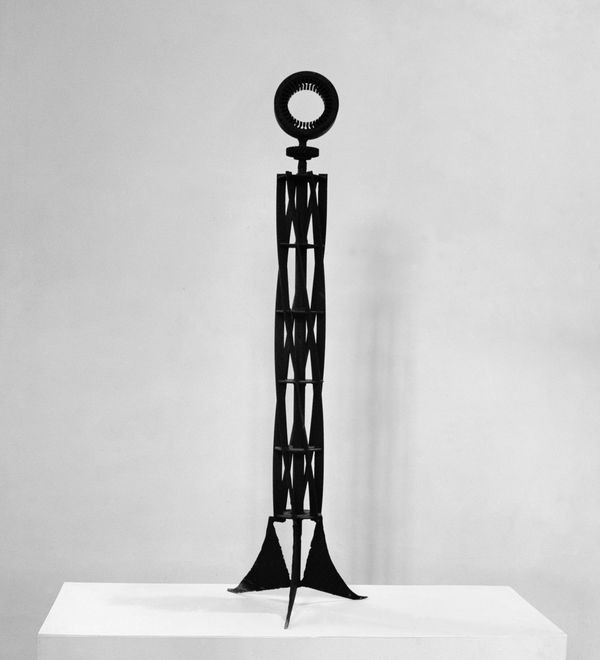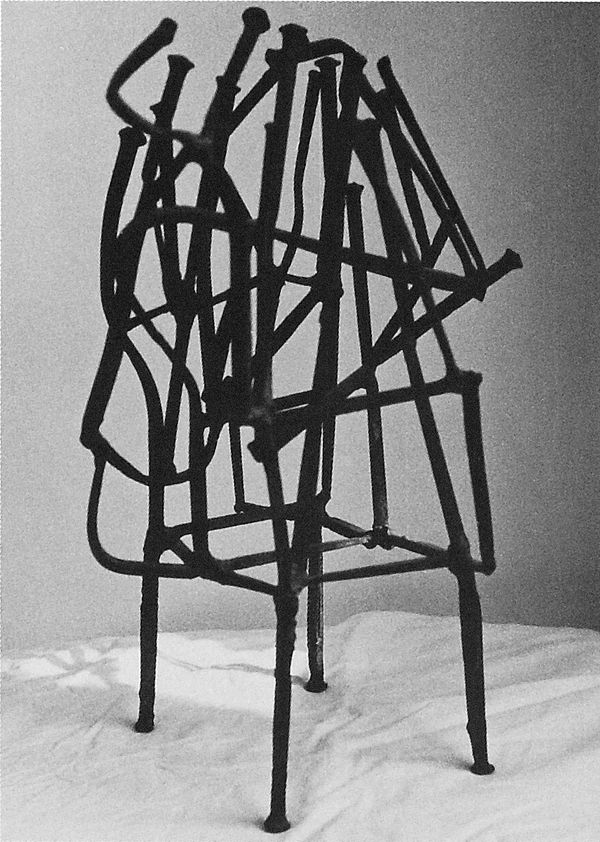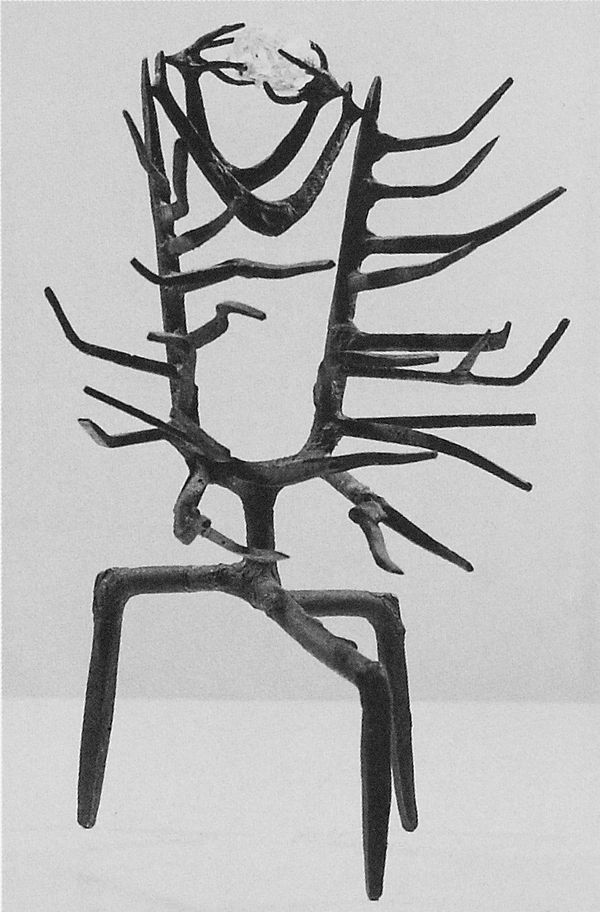Having learnt to weld, in order to create larger scale Mobiles and Stabiles suitable for public display, a swift period of evolution began for Chadwick in the early 50's. As the moving elements gradually fused into welded metal rods and iron, the attitude and energy of his angular sculptures sharpened. Delicate and aggressive, these forms are a haunting synthesis of horns, teeth, spikes and pincer-like legs.
In 1953 Chadwick introduced plaster into his work. The process of welding metal armatures and surfacing them with plaster became the template for creating bronze casts from what became known as working models (see Bronze Works).
In 1962, Chadwick produced his largest Welded Iron work, see 'Two Winged Figures', which went on display at the city of Spoleto, Italy for the 'Festival of Two Worlds' exhibition.
During the winter of 1963, Chadwick was held captive by heavy snow at his home in Gloucestershire. Unable to obtain the materials he was then working with (Iron rods and Stolit), he collected broken machinery about the dilapidated outbuildings. He used this assortment of parts to weld together a unique collection of work, see Transmuter III -1963. Most of these works are now on permanent loan to Nordjyllands Kunstmuseum, Aalborg, Denmark.
In 1953 Chadwick introduced plaster into his work. The process of welding metal armatures and surfacing them with plaster became the template for creating bronze casts from what became known as working models (see Bronze Works).
In 1962, Chadwick produced his largest Welded Iron work, see 'Two Winged Figures', which went on display at the city of Spoleto, Italy for the 'Festival of Two Worlds' exhibition.
During the winter of 1963, Chadwick was held captive by heavy snow at his home in Gloucestershire. Unable to obtain the materials he was then working with (Iron rods and Stolit), he collected broken machinery about the dilapidated outbuildings. He used this assortment of parts to weld together a unique collection of work, see Transmuter III -1963. Most of these works are now on permanent loan to Nordjyllands Kunstmuseum, Aalborg, Denmark.
-
 Maquette III Inner Eye, 1952
Maquette III Inner Eye, 1952 -
 Diamond Lil, 1952
Diamond Lil, 1952 -
 Stabile, 1952
Stabile, 1952 -
 Construction with Glass, 1952
Construction with Glass, 1952 -
 Untitled, 1952
Untitled, 1952 -
 Maquette II Inner Eye, 1952-3
Maquette II Inner Eye, 1952-3 -
 Beast, 1953
Beast, 1953 -
 Iron Sculpture, 1953
Iron Sculpture, 1953 -
 Maquette for Unknown Political Prisoner, 1952-3
Maquette for Unknown Political Prisoner, 1952-3 -
 Conjunction, 1953
Conjunction, 1953 -
 Untitled, 1953
Untitled, 1953 -
 Untitled, 1953-4
Untitled, 1953-4 -
 Original Maquette for Two Dancing Figures, 1954
Original Maquette for Two Dancing Figures, 1954 -
 Short Horn, 1954
Short Horn, 1954 -
 Untitled, 1954
Untitled, 1954 -
 Untitled, 1954
Untitled, 1954 -
 Untitled, 1954
Untitled, 1954 -
 Untitled, 1954
Untitled, 1954 -
 Dance, 1955
Dance, 1955 -
 Dance IV, 1955
Dance IV, 1955 -
 The Seasons, 1955
The Seasons, 1955 -
 Two Dancing Figures VI, 1955
Two Dancing Figures VI, 1955 -
 Untitled, 1955
Untitled, 1955 -
 Maquette for Second Version of Two Dancing Figures, 1955-6
Maquette for Second Version of Two Dancing Figures, 1955-6 -
 Winged Figures (Two Dancing Figures), 1955-6
Winged Figures (Two Dancing Figures), 1955-6 -
 Dance, 1956
Dance, 1956 -
 Dance XI, 1957
Dance XI, 1957 -
 Maquette I Moon of Alabama, 1957
Maquette I Moon of Alabama, 1957 -
 Phoenix, 1957
Phoenix, 1957 -
 Untitled, 1957
Untitled, 1957 -
 Beast XIV, 1958
Beast XIV, 1958 -
 Beast XXIII, 1959
Beast XXIII, 1959 -
 Two Trigs, 1959
Two Trigs, 1959 -
 Two Watchers IV, 1959
Two Watchers IV, 1959 -
 Later Alligator, 1961
Later Alligator, 1961 -
 Seasons C., 1962
Seasons C., 1962 -
 Tokyo I, 1962
Tokyo I, 1962 -
 Starter I, 1963
Starter I, 1963 -
 Starter III, 1963
Starter III, 1963 -
 Transmuter VI, 1963
Transmuter VI, 1963 -
 Untitled, 1964
Untitled, 1964 -
 Amber Spikey C., 1964
Amber Spikey C., 1964 -
 Split, 1965
Split, 1965 -
 Spikey C., 1966
Spikey C., 1966 -
 The Stargazer C., 1967
The Stargazer C., 1967 -
 Iron Cross C., 1968
Iron Cross C., 1968 -
 Hand C., 1970
Hand C., 1970

